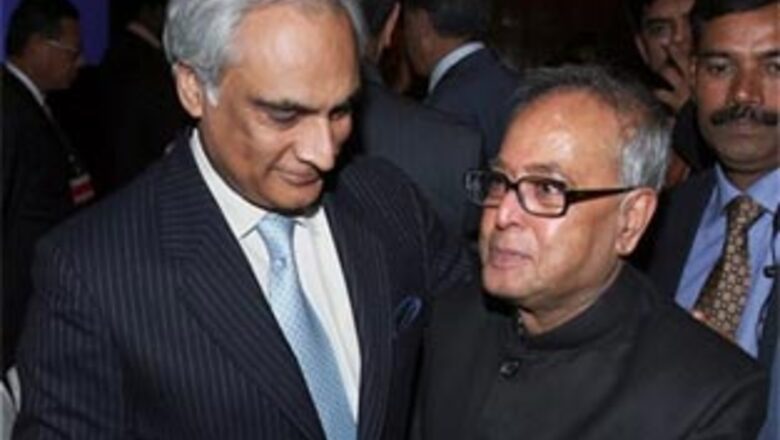
views
New Delhi/Islamabad: India said on Wednesday it would keep all options open to dismantle "terror outfits" after the Mumbai attacks and Pakistan finally confirmed the lone surviving gunman was Pakistani.
Pakistan's Prime Minister dismissed his National Security Adviser shortly afterwards.
India had been saying for weeks that Mohammad Ajmal Amir Kasab, who was captured after the November attacks, was from Pakistan.
The Prime Minister's office said Mahmud Ali Durrani had been sacked "for his irresponsible behaviour for not taking the prime minister and other stakeholders into confidence, and a lack of coordination on matters of national security."
Indian officials have shown increasing frustration at what they see as Pakistan's unwillingness to fully investigate the attacks in November by 10 terrorists that killed 179 people.
"I say we are keeping all options open," Indian External Affairs Minister Pranab Mukherjee told a news channel.
Defence Minister AK Antony, too, made similar comments.
Information Minister Sherry Rehman said initially on Wednesday the gunman had links with Pakistan and that the investigation was continuing.
"We have confirmed it," she said, referring to the fact he was a Pakistani citizen.
The Hindu newspaper published details from India's dossier of evidence on Wednesday, including what it said were transcripts of conversations between handlers and the terrorists during the attack.
"Everything is being recorded by the media. Inflict the maximum damage. Keep fighting. Don't be taken alive," one handler identified as Kafa told a terrorist, the newspaper said.
"Kill all hostages, except the two Muslims. Keep your phone switched on so that we can hear the gunfire," a caller said.
The dossier has also been sent to countries whose citizens were victims of the attacks, such as the United States, as India tried to corner Pakistan diplomatically into bringing the perpetrators to justice.
David Mulford, the US Ambassador to India, said on Wednesday the evidence India had provided was "credible".
Prime Minister Manmohan Singh stepped up a war of words on Tuesday, saying for the first time the assault "must have had the support of some official agencies in Pakistan".
PAGE_BREAK
Singh may be playing to a domestic audience before General Elections this year.
The Samajwadi Party, a key Indian government coalition partner, reportedly threatened to withdraw its support because of what it said was India's soft stance on Pakistan.
Pakistan has denied any involvement by state agencies and rejected Singh's accusation, saying India risked destroying all prospects of a serious and objective investigation.
The nuclear-armed rivals have fought three wars since 1947.
Whipping up tension
Pakistani Prime Minister Yousaf Raza Gilani said Pakistan had made constructive proposals for cooperation and initiated its own investigation but India was unnecessarily whipping up tension.
"Our own investigations into Mumbai have progressed," Gilani said.
"We are prepared to take this process forward with a view to uncovering full facts thus ensuring that the perpetrators of this heinous crime whosoever they may be are brought to justice."
"India has not only refused to cooperate in the investigations pertaining to Mumbai but has chosen to undertake a media and diplomatic offensive against Pakistan," he said.
A similar attack on India's Parliament in 2001 nearly sparked a war after a massive build-up of forces on their border.
There has been no such troop build-up this time although Pakistan last month cancelled army leave and said it had moved limited numbers of troops off the Afghan border, where it is battling al Qaeda and Taliban militants, for defensive purposes.
Any movement of Pakistani troops off its western border will alarm the United States and other countries with troops in Afghanistan who are depending on Pakistan to disrupt militant supply networks and infiltration into Afghanistan.
Pakistani Foreign Minister Shah Mehmood Qureshi told a news conference in Kabul on Wednesday Pakistan did not want war but every Pakistani would fight back if India attacked.
"But we do not want a war, no sane person wants war," Qureshi said.
"The western border is very important ... we want troops in large numbers on the western border and we want to remain engaged on the western border and we will do so," he said.
"There is no question of moving away from the western border."


















Comments
0 comment